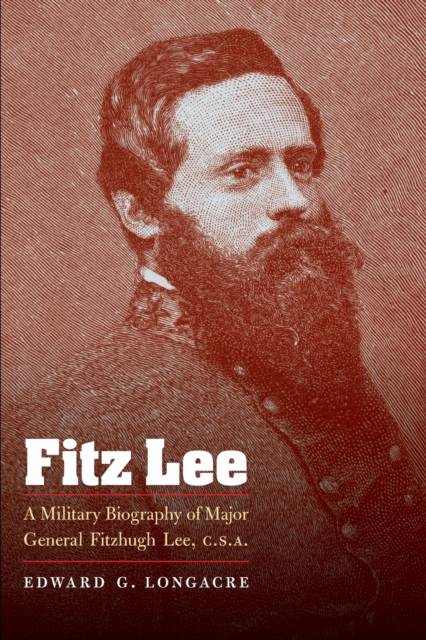
- Afhalen na 1 uur in een winkel met voorraad
- Gratis thuislevering in België vanaf € 30
- Ruim aanbod met 7 miljoen producten
- Afhalen na 1 uur in een winkel met voorraad
- Gratis thuislevering in België vanaf € 30
- Ruim aanbod met 7 miljoen producten
Zoeken
Fitz Lee
A Military Biography of Major General Fitzhugh Lee, C.S.A.
Edward G Longacre
Paperback | Engels
€ 34,95
+ 69 punten
Omschrijving
As the grandson of Henry "Light-Horse Harry" Lee and the nephew of Robert E. Lee, Fitzhugh Lee--nicknamed "Fitz"--was born into one of Virginia's most distinguished families. Upon graduation from West Point, Fitz Lee served in the U.S. Army until the outbreak of the Civil War, when he joined the Confederate cavalry forces. After participating in the Peninsula Campaign, he rapidly rose in rank, promoted first to brigadier general in July 1862, then to major general in the fall of 1863. Only twenty-seven years old, he commanded with distinction at Antietam, Fredericksburg, Chancellorsville, and Gettysburg. Severely wounded in 1864, he subsequently returned to service and was promoted to commander of the cavalry of the Army of Northern Virginia, which he led during the final campaigns of the war. After the war Fitz Lee served as governor of Virginia, commander of the U.S. Volunteers in the Spanish-American War, and postwar occupation commander in Cuba. He also wrote many popular works of military history and biography; his biography of Robert E. Lee is still in print. Acclaimed Civil War author Edward G. Longacre has combed family records, West Point cadet files, and the National Archives to produce a lively biography of one of the South's youngest and ablest cavalry commanders--a man who later became one of America's most distinguished military leaders.
Specificaties
Betrokkenen
- Auteur(s):
- Uitgeverij:
Inhoud
- Aantal bladzijden:
- 304
- Taal:
- Engels
Eigenschappen
- Productcode (EAN):
- 9780803230088
- Verschijningsdatum:
- 1/07/2010
- Uitvoering:
- Paperback
- Formaat:
- Trade paperback (VS)
- Afmetingen:
- 147 mm x 217 mm
- Gewicht:
- 417 g

Alleen bij Standaard Boekhandel
+ 69 punten op je klantenkaart van Standaard Boekhandel
Beoordelingen
We publiceren alleen reviews die voldoen aan de voorwaarden voor reviews. Bekijk onze voorwaarden voor reviews.








